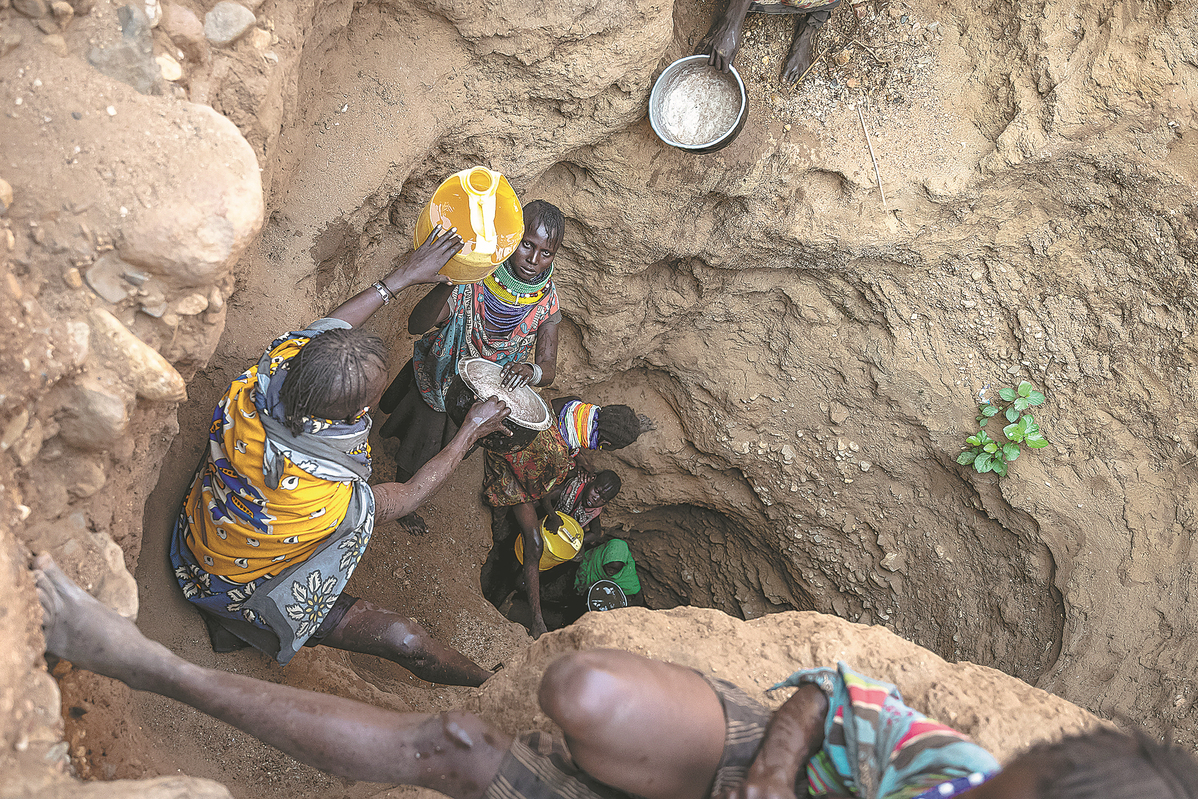Africa seeks to make climate needs known on global stage


Disproportionate financing
"The declaration also shed light on the disproportionate global climate change financing system by urging developed countries to honor their commitment to provide $100 billion per year in climate finance by 2020 and increase their ambition and support for adaptation, mitigation, technology transfer and capacity building in Africa."
Nyambuga said the Africa Climate Summit also drew attention to local African solutions in combating climate change, adding that previous focus on local solutions generated by native communities had been inadequate.
As global delegates gathered in the United Arab Emirates in November for the 28th Conference of the Parties to the United Nations Framework Convention on Climate Change, African experts have said the forum produced a range of outcomes that may help to scale up efforts to invest in clean energy, mitigate climate change damage and accelerate the development of carbon markets.
A key priority for the African continent heading into COP28 was to bring the loss and damage fund into operation, said Hardi Yakubu, movement coordinator of Africans Rising For Unity, Justice, Peace& Dignity, a pan-African civil society movement. This fund was agreed in principle at the previous summit as a vehicle to help low-income countries that are most exposed to climate change impacts, and was featured prominently in the Nairobi Declaration.
The financial commitments announced by several countries at COP28, with pledges totaling more than $700 million, reflect a glimmer of hope for developing countries, said Yakubu, a climate activist from Ghana.
"The first round of pledges will clearly be insufficient to support countries in Africa and around the world on the front line of the climate crisis. However, the success of this fund will depend on the speed and scale at which funds start flowing to people in need," he said.
Another area that received much attention at COP28 was Africa's contribution to the voluntary carbon market, he said. This market provides a route for Africa to financially benefit from its natural resources and assets which remove carbon from the atmosphere and provide other environmental services to the planet.
"COP28 achieved good progress toward realizing the win-win opportunities from the carbon markets. Africa is poised to benefit from a maturation of the carbon market over the next 18 months," Yakubu said.
Mugambi said all is not lost for Africa as the continent steps up efforts to make its climate needs known.
In addition to demanding climate compensation, he said African policymakers can create an enabling environment for green ventures that invest in research, innovation and education, as well as for promoting public-private partnerships and fostering collaboration across governments, businesses and local communities.
"Africa should prioritize transitioning to sustainable agriculture, which currently contributes about 17 percent to sub-Saharan Africa's GDP. Embracing organic farming, precision agriculture and agroforestry are some of the approaches that can enhance productivity while minimizing negative impacts on ecosystems," he said.
"Africa can also become a trailblazer in renewable energy solutions, with abundant solar, wind, hydro, biomass and geothermal resources that may contribute to an increase in the continent's GDP. Ocean renewable energy is another vast untapped resource for Africa."

































